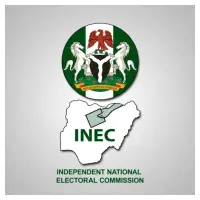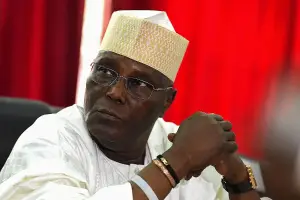The Nigerian Senate has taken decisive action against the proliferation of Ponzi schemes in the country by mandating its joint committees to conduct a comprehensive investigation into their operations, with particular focus on the recent Crypto Bullion Exchange (CBEX) scandal.
During Wednesday's plenary session, the Senate directed its Committees on Capital Market, Banking, Insurance and Other Financial Institutions, Anti-Corruption and Financial Crimes, and ICT & Cyber Security to conduct investigative hearings across all six geopolitical zones of the country.
The motion, titled "Investigative Hearing into the operations of Ponzi Schemes in Nigeria, with particular reference to the recent Crypto Bullion Exchange, CBEX incident," was sponsored by Senators Adetokunbo Abiru (APC Lagos East) and Osita Izunaso (APC Imo West).
Senator Abiru, who chairs the Senate Committee on Banking, Insurance and Other Financial Institutions, raised alarm over the increasing sophistication of Ponzi scheme operators and the devastating consequences of their actions on unsuspecting Nigerians.
"The economic wellbeing and financial security of Nigerian citizens are essential pillars of national stability and growth, and it is the duty of government to protect the populace from exploitative, predatory and fraudulent financial practices and schemes that threaten their livelihoods," he stated.
CBEX Scandal: A N1.3 Trillion Financial Disaster
The senator specifically highlighted the recent CBEX scandal, describing it as "a digital investment platform which lured millions of Nigerians with the promise of outrageous returns, before suddenly collapsing and resulting in investors losing over N1.3 trillion (about $847 million), making it one of the most devastating financial scams in the country's history."
Abiru expressed concern that despite CBEX's scale of operations and visibility, it operated for an extended period without facing sanctions from regulatory bodies such as the Securities and Exchange Commission (SEC), the Central Bank of Nigeria (CBN), the Nigerian Financial Intelligence Unit (NFIU), or the Economic and Financial Crimes Commission (EFCC).
The lawmaker noted that Nigeria has witnessed a troubling pattern of Ponzi schemes over the years, including MMM Nigeria in 2016 and MBA Forex in 2020, which have repeatedly defrauded millions of Nigerians, causing severe financial hardship and, in some cases, driving victims to depression, family breakdowns, and even suicide.
Factors Contributing to Vulnerability
According to Senator Abiru, several factors make Nigerians increasingly vulnerable to these fraudulent schemes, including:
High youth unemployment
Widespread poverty
Low levels of financial literacy
Lack of access to formal investment opportunities
Growing sophistication of fraudulent platforms
He argued that Section 88 (1) (a) and (b) of the Constitution empowers the National Assembly to conduct investigations into the failure of regulatory agencies to monitor and prevent such frauds, as well as to propose necessary legislative or administrative reforms to forestall future occurrences.
Senate President Godswill Akpabio, who recalled his personal experience with a fraudulent investment scheme in the early 1990s, commended the sponsors of the motion and directed the joint committees to conduct a thorough investigation and report back within four weeks.
The Senate's intervention comes at a critical time when digital investment scams are becoming increasingly sophisticated, targeting vulnerable Nigerians seeking financial opportunities in a challenging economic environment.
Stay informed on this developing story and other important news by following BenriNews on our social media platforms: Facebook, Twitter, LinkedIn, WhatsApp, and Telegram.











